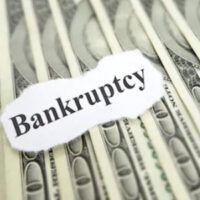Can My Business Discharge Debts in Chapter 7 Bankruptcy?

When individuals and businesses alike are considering the possibility of bankruptcy due to financial difficulties, they are often thinking about a liquidation bankruptcy under Chapter 7. While there are many different types of bankruptcy, including a wide range of reorganization bankruptcies that do not require the liquidation of non-exempt assets, Chapter 7 bankruptcies tend to be commonly known and are common forms of bankruptcy to file. Although individuals and businesses typically file for different types of bankruptcy when they want to file for a reorganization bankruptcy, the same is not true for a liquidation bankruptcy. For a liquidation bankruptcy, individuals and businesses both typically file for Chapter 7 bankruptcy. However, the cases do not work exactly alike.
While an individual can usually expect to have debts discharged in a Chapter 7 bankruptcy case, the process does not work the same way for a business entity that has filed for Chapter 7 bankruptcy. Our West Palm Beach bankruptcy lawyers can provide you with additional information.
Individuals and Married Couples Can Expect to Discharge Debts in a Chapter 7 Bankruptcy Case
When an individual (or a married couple jointly) files for Chapter 7 bankruptcy, that individual can expect to receive a discharge of eligible debts assuming that all aspects of the bankruptcy case go as planned. Many types of consumer debts are dischargeable, and there are just some exceptions to consider. In most consumer bankruptcy cases, individuals are able to have credit card debt, medical debt, personal loan debt, mortgage debt, and other types of debt discharged. A debt discharge means that the debtor is no longer liable for the debt. Common exceptions include types of tax debt and family support debt.
Businesses Filing for Chapter 7 Should Not Expect a Discharge
Unlike individuals, businesses do not receive a discharge. Since a business that files for Chapter 7 bankruptcy closes and liquidates all assets, there is no longer an entity for creditors to pursue for remaining debts.
Exception for Sole Proprietors
The one exception to know about concerns sole proprietors and businesses structured as sole proprietorships. If you own your own small business in South Florida, and you are the single owner and the business is structured as a sole proprietorship, bankruptcy law does not see you and your business as separate entities. Rather, any Chapter 7 bankruptcy filing (whether it arises largely out of your business’s finances or your personal finances) will need to include both business and personal finances. All non-exempt assets owned by you or that are part of your business will be liquidated, but you can receive a discharge of remaining eligible debts, including business debts.
Contact Our West Palm Beach Bankruptcy Attorneys Today
Whether you are considering a Chapter 7 bankruptcy filing for yourself or for your business, it is essential to seek advice from an experienced West Palm Beach bankruptcy lawyer at Kelley Kaplan & Eller, PLLC before you file. There are many steps involved in Chapter 7 bankruptcy cases for individuals and businesses alike, but our firm can assist you every step of the way. Contact us for more information.
Source:
law.cornell.edu/uscode/text/11



